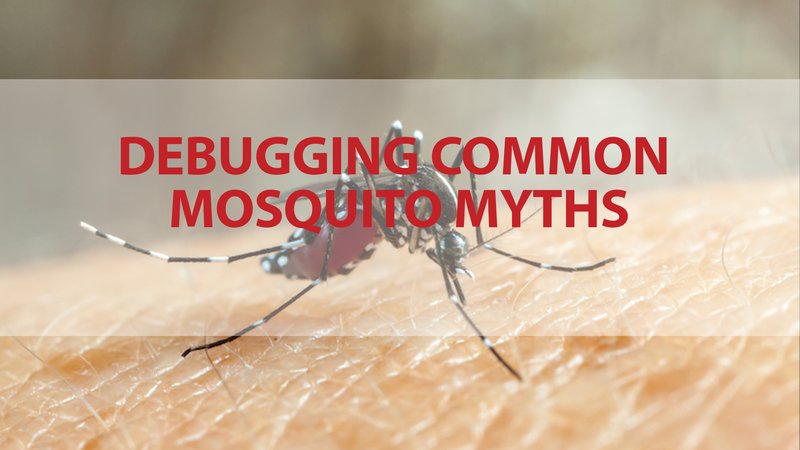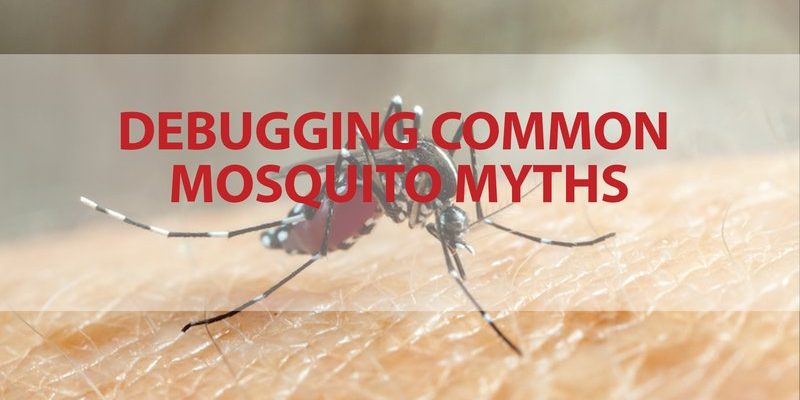
Let’s dive into some common myths about mosquitoes, unpacking the truth behind them. From their diet to their behavior, you might be surprised by what you find out. So grab a drink—maybe something refreshing to ward off those mosquitoes—and let’s clear the air.
Mosquitoes Only Bite Humans
You might be surprised to learn that mosquitoes aren’t just fans of human blood. In fact, they enjoy a wide range of meals. While it’s true that female mosquitoes need blood to develop their eggs, they actually feed on nectar and other plant juices during their lifetime. Isn’t that a twist?
Most of the 3,500 species of mosquitoes aren’t solely interested in humans. Many prefer to bite animals like birds, horses, or even reptiles. So, the next time you feel a mosquito land on your arm, just remember, it might have just as easily chosen a nearby dog or a fluffy cat for its meal.
All Mosquitoes Transmit Diseases
Here’s something that might make you feel a bit better: not all mosquitoes are disease carriers. While diseases like malaria, dengue, and Zika are associated with certain mosquito types, the majority of mosquito species are harmless. In fact, the risk varies significantly depending on location and species.
For example, the Aedes aegypti, a common vector in urban areas, is famous for spreading diseases. But other species, like the Culex pipiens, are known for being relatively benign. This means that while awareness is important, panicking every time you see a mosquito isn’t necessary.
Male Mosquitoes Bite
You might be surprised to find out that male mosquitoes don’t bite at all. It’s the females that are responsible for those annoying bites since they require blood to produce offspring. Males, on the other hand, primarily feast on nectar and other plant juices.
Think of it this way: male mosquitoes are more like the easygoing partiers who enjoy a good flower buffet rather than crashing your picnic. So, the next time you hear someone complain about getting bitten, you can confidently tell them it’s only the ladies doing the biting!
They’re Attracted to Sweet Blood
Have you ever heard that mosquitoes prefer “sweet” blood? It sounds like something straight out of a vampire novel, right? But here’s the truth: mosquitoes are drawn to carbon dioxide, heat, and certain body odor compounds rather than the sweetness of your blood.
Factors like genetics, diet, and even the kind of bacteria living on your skin can play a significant role in how attractive you are to these little biters. People who exercise frequently may find themselves more appealing because increased body temperature and sweat can attract mosquitoes. So, if you’re swatting them away after a workout, it’s not your fault—you’re just too tempting!
Bug Sprays Are 100% Effective
Bug sprays can be a lifesaver when it comes to keeping mosquitoes at bay, but they aren’t foolproof. Many people assume that applying bug spray will guarantee they won’t be bitten, but that’s not the whole picture. Certain factors influence the effectiveness of these sprays, such as concentration and how often you reapply.
For instance, if you’re out sweating, swimming, or spending lots of time in thick vegetation, you might need to reapply more frequently. Also, not all sprays work equally well on all mosquito types. Always check the active ingredients and consider your environment.
Using Citronella Will Keep Mosquitoes Away
You’ve probably heard that citronella can fend off mosquitoes, but it’s a bit more complicated than that. While citronella does help mask scents that attract mosquitoes, it doesn’t repel them completely. Think of it like a half-hearted curtain call at a concert—sure, it helps a little, but it doesn’t block the show.
Citronella candles can be effective in limited spaces, but their coverage is minimal. Using them in combination with other methods, like wearing protective clothing and using bug sprays, will boost your defenses against those pesky little pests.
Only Tropical Areas Have Mosquito Problems
While it’s true that tropical regions are heavily populated with mosquitoes, don’t let that fool you into thinking they only thrive in warm climates. Mosquitoes can be found in various environments, including temperate regions. In fact, even in cooler areas, certain species can become active during warmer months.
During the summer, a simple rain puddle can become a breeding ground. So, whether you’re chilling in a cozy cabin or enjoying a picnic in your backyard, always be aware of your mosquito surroundings.
Understanding the myths surrounding mosquitoes can help us navigate our encounters with them more effectively. It’s easy to fall for exaggerated tales or assumptions, but the truth often tells a different story. Instead of fearing these tiny creatures, we can take informed measures to protect ourselves.
Next time you feel that familiar buzz, remember that mosquitoes are more complex than they seem. They play a role in the ecosystem, but knowing the facts lets us handle them wisely—whether it’s using bug spray, wearing protective clothing, or simply enjoying a good citronella candle without expectation. Let’s embrace the truth and keep our summer evenings as enjoyable as possible!

